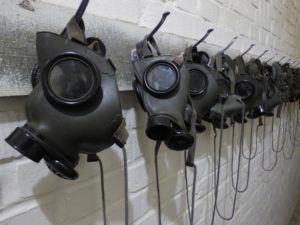 The air strikes in Syria by the UK, the US, and France have attracted the attention of a plethora of media again. The US, in spite of Trump’s claims that Washington is withdrawing from the region, has carried out a limited attack on Syria, but its consequences will certainly affect Trump and his allies in the near future. Quickly responding to Saturday’s triune missile strikes on Syrian chemical sites, Russia emboldened its relation to Iran and bolstered the Syrian military. Most likely Russia will resume talks with Syria and other countries over the sale of modern S-300 air defense systems to protect against future US-British-French strikes America, France, and Britain boasted that they had taught Bashar al-Assad a lesson. It is really hypocritical to boast about teaching lessons to Assad given that this was a one time, limited attack that hardly dented Assad’s capacity to kill his own people. These three countries seemingly do not care enough nor do they have the political will to save Syrians from Assad’s regime. It is almost a joke for us to believe that U.S, Britain, and France have given a message that they will not tolerate Assad’s chemical attacks and will strike back if such crimes against humanity are committed again. That is not the real problem in Syria.
The air strikes in Syria by the UK, the US, and France have attracted the attention of a plethora of media again. The US, in spite of Trump’s claims that Washington is withdrawing from the region, has carried out a limited attack on Syria, but its consequences will certainly affect Trump and his allies in the near future. Quickly responding to Saturday’s triune missile strikes on Syrian chemical sites, Russia emboldened its relation to Iran and bolstered the Syrian military. Most likely Russia will resume talks with Syria and other countries over the sale of modern S-300 air defense systems to protect against future US-British-French strikes America, France, and Britain boasted that they had taught Bashar al-Assad a lesson. It is really hypocritical to boast about teaching lessons to Assad given that this was a one time, limited attack that hardly dented Assad’s capacity to kill his own people. These three countries seemingly do not care enough nor do they have the political will to save Syrians from Assad’s regime. It is almost a joke for us to believe that U.S, Britain, and France have given a message that they will not tolerate Assad’s chemical attacks and will strike back if such crimes against humanity are committed again. That is not the real problem in Syria.
The problem is that Assad has probably bombed, killed, and butchered more than a million civilians with conventional weapons and continues to do so. In addition, millions of Syrians are already living as refugees in other countries. Why have the UK, the US, and France not responded to the humanitarian crisis previously? Evidently, the West and the United States do not have a plan for the Middle East. But Russia, Iran, and Turkey definitely do. With the support of Russian mercenaries, Hezbollah forces advanced to cross the Euphrates River. Hoping to seize the east Syrian Konok gas and Al-Umar oil fields from US control, Hezbollah pressed forward during the cruise missile strike. Iranian Ayatollah Ali Khameneis’s advisor, Ali Akbar Velyati, emphasized the strategic significance of the American-held area and, thus, Iran’s impetus to regain it.
The allied strike of the 100 cruise missiles reflects a lack of rationally and reveals the dangerous game of the power players in Syria. Since his inauguration President Donald Trump has been the most rhetorically nontraditional commander-in-chief in modern American history. He has not been consistent with his message when it comes to Syria. Days after he declared that America would be leaving, he sent missiles to Syria. Before Donald Trump became President, he was very critical of a seemingly endless war in Iraq and the ongoing war in Afghanistan, denouncing nation building goals and promising to put America first. One world idealism imagines that everyone wants to live like Westerners, to embrace Western principles and goods, to accept politicians’ freedom, to tolerate minorities, to promote gender equality, to embrace secular government, and to work for an open society. Every country, however, has its own set of values and culture. That is not to say all world systems are equally just, but they each have autonomy.
What is happening in Syria is a political and moral failure of the world, and, in part, basically that failure reflects an incoherent US foreign policy. America and the West betrayed their Kurdish allies in Iraq, and the policy has bled over into Syria indicating that the West does not have a clear policy towards the Syrian Kurds either. Trump’s policies with respect to Syria and the Syrian Kurds have been in a constant state of flux for sometime now. There is always a degree of coordination between the US, Israel, and Saudi Arabia, but America has been unable to come up with a clear policy towards Syria and America’s main loyal ally, the Kurds and Syria
Dr. Aland Mizell is President of the MCI and a regular contributor to Mindanao Times. You may email the author at:aland_mizell2@hotmail.com

